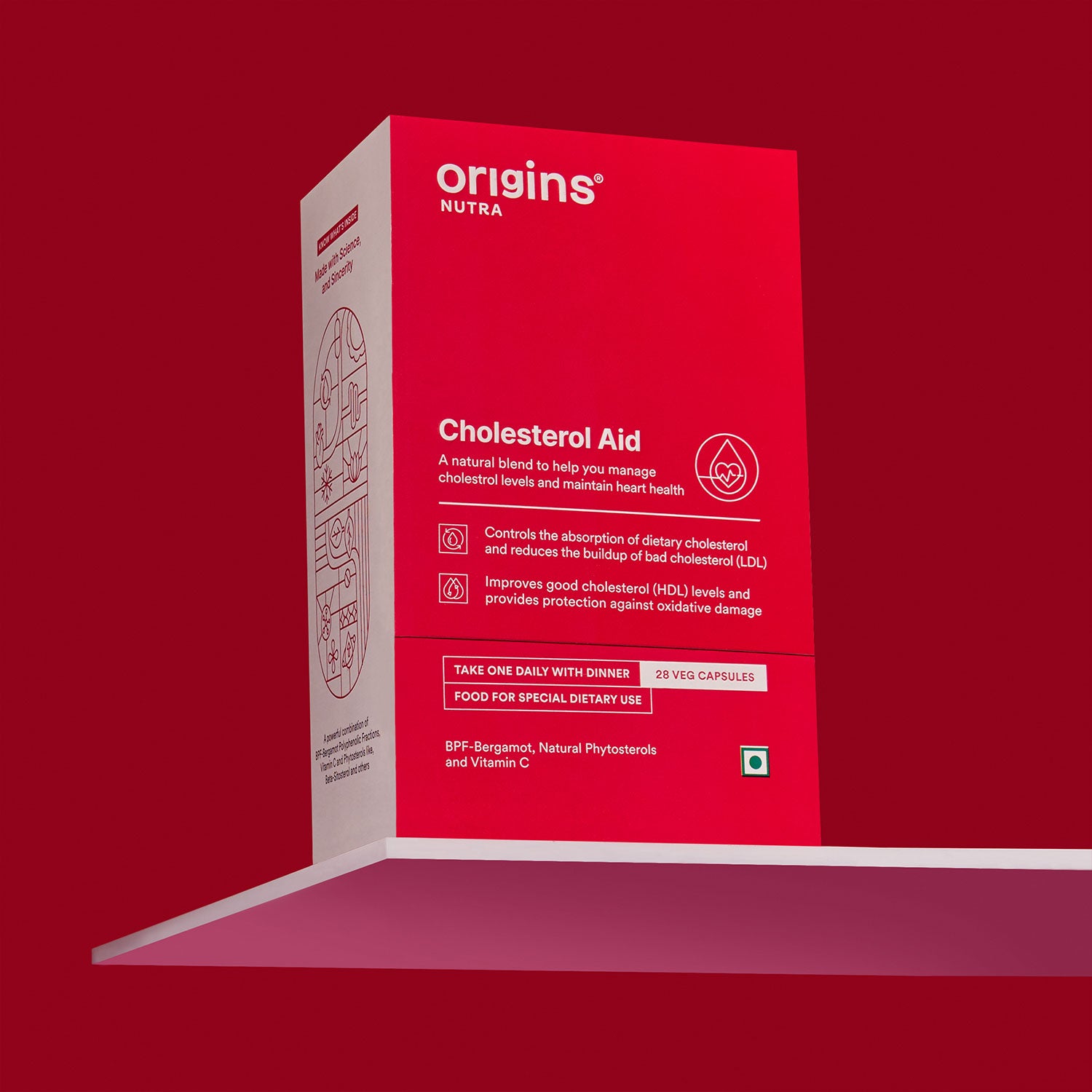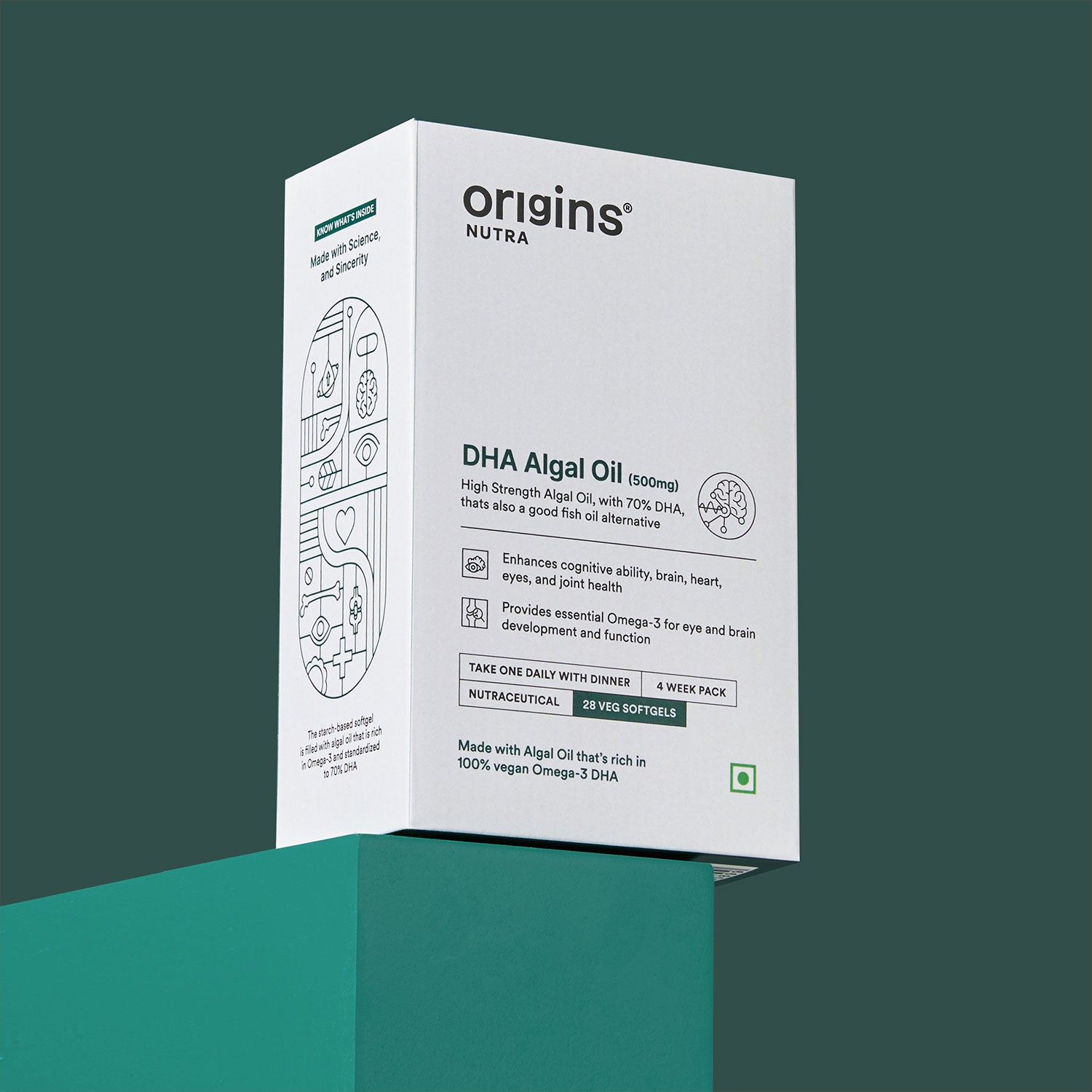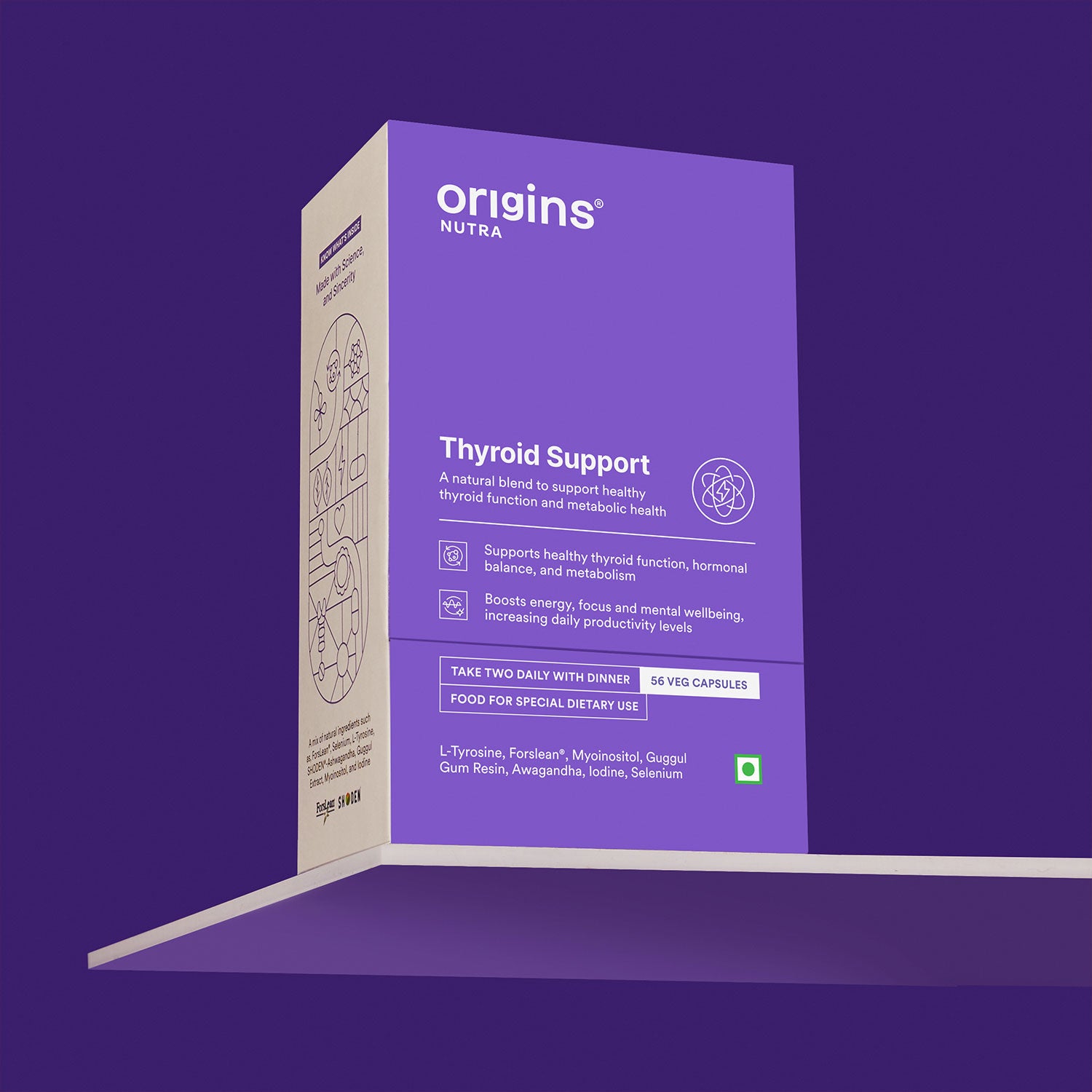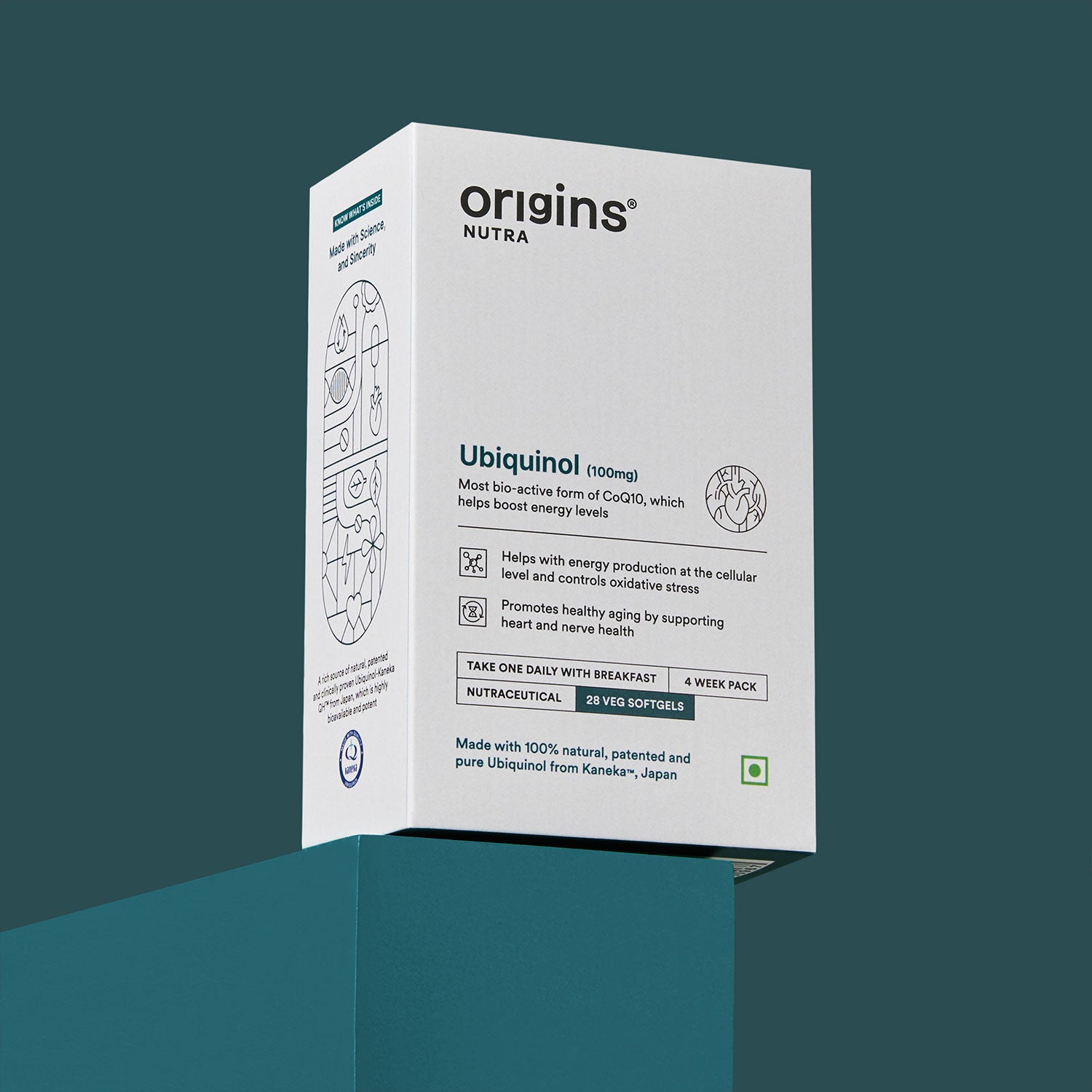Signs of OMEGA-3 Deficiency that you shouldn't ignore

In the past 20 years, there's been a lot of interest in omega-3 and omega-6 fatty acids and how they affect our health. Omega-3s have anti-inflammatory effects, while omega-6s can be pro-inflammatory. Our diets, heavy on omega-6-rich oils and meats, have shifted the balance from an original 1:1 ratio to a modern 50:1 ratio in urban Indian diets. Recognizing the symptoms of omega-3 deficiency is crucial, as they can be subtle but impact overall health. Neglecting these deficiencies may lead to preventable health issues. As awareness rises, medical professionals are incorporating omega-3 assessments into diagnostics, urging individuals to understand symptoms and benefits for a holistic approach to well-being.
Today, diets provide 80-90% omega-6 linoleic acid (LA) but lack omega-3s, upsetting the balance. Increased soybean oil consumption is linked to higher LA and lower EPA/DHA levels. Oily fish, rich in omega-3s, offer health benefits. Boosting omega-3 intake enhances EPA/DHA levels, influencing cell structure and proteins vital for signalling and gene expression. DHA supports brain and eye development, while EPA/DHA together foster optimal conditions for growth and overall health. Sadly, global surveys show generally low omega-3 levels, particularly in India, elevating the risk of chronic diseases.
Here are some Omega-3 deficiency health issues that shouldn’t be ignored:
1) Central nervous system Manic/Depression (Bipolar Disorder):
Omega-3 fatty acids play a crucial role in maintaining mental health by aiding communication between nerve cells. Low omega-3 intake or an imbalance with omega-6 may heighten depression risk. Studies on bipolar disorder show that EPA and DHA, along with standard treatments, reduce mood swings. Fish oil has successfully treated bipolar disorder at Harvard Medical School. Omega-3 also shows promise in treating depression and improving the quality of life in Alzheimer's patients. While omega-3 benefits for schizophrenia are debated, ongoing research aims to clarify its role. Understanding these connections can empower individuals to make informed choices for their mental well-being.
Signs of potential omega-3 deficiency or imbalance in individuals with bipolar disorder may include noticeable mood swings, periods of intense highs (mania), and lows (depression).

2) Attention Deficit Hyperactivity Disorder (ADHD):
Omega-3 levels in children are linked to hyperactivity, and exciting research from the University of Adelaide suggests that omega-3 fish oil could be more effective than medication in treating ADHD. In a study with 7 to 12-year-olds, daily fish oil capsules led to significant behavioural improvements in just three months, with a one-third increase in concentration. After seven months, many children were calmer, performed better at school, and could concentrate longer. Switching to fish oils from dummy capsules also improved behavior. Dr. Alex Richardson from Oxford University highlights the importance of fish and seafood as crucial sources of essential Omega-3s for optimal brain health, especially in cases where direct fish consumption is limited.

3) Blood pressure:
Omega-3 fish oil supplements bring a range of heart benefits, from preventing blood clotting to reducing blood pressure and stabilising heart rhythm. To support heart health, it's recommended to adopt a low-fat diet and replace saturated fats with omega-3-rich foods. The EPA and DHA in fish oil have been proven to lower heart disease risk factors like high cholesterol and high blood pressure. They play a crucial role in preventing artery blockages by hindering plaque and blood clot development. Studies show that daily omega-3 supplements significantly reduce the risk of death, subsequent heart attacks, and stroke in heart attack survivors. A diet rich in ALA also lowers the likelihood of a fatal heart attack.

4) Heart attack:
Omega-3 fish oil supplements are praised for preventing heart attacks by lowering triglyceride levels, reducing blood pressure, and preventing artery plaque buildup. Recognizing signs of omega-3 deficiency is vital, as it may include chest pain, discomfort in the upper body, and shortness of breath Prioritizing omega-3 intake can be a simple yet impactful step toward a healthier heart.

5) Stroke:
Solid evidence from studies shows that including omega-3 fatty acids, mainly found in fish, in your diet can shield against strokes caused by plaque buildup and blood clots in the arteries to the brain. Simply enjoying fish twice a week can rule out your risk of experiencing a stroke by up to 50%. It's a delicious and easy way to take care of your heart and brain health.
Signs that may indicate an increased risk of stroke include sudden numbness or weakness, especially on one side of the body, confusion, and trouble speaking or understanding speech.

6) Rheumatoid arthritis:
Exploring omega-3 supplements for inflammatory joint conditions, especially rheumatoid arthritis, reveals promising results. Studies consistently show that omega-3s reduce joint tenderness and morning stiffness and even allow for a decrease in medication for those with rheumatoid arthritis. Lab studies suggest potential benefits for other inflammatory disorders like osteoarthritis by emphasizing diets rich in omega-3s and low in omega-6s. These studies indicate that omega-3s may reduce inflammation and protect cartilage from damaging enzymes. Signs of rheumatoid arthritis may include joint tenderness, morning stiffness, and swelling. The New Zealand green-lipped mussel, a potential omega-3 source, has shown promise in improving joint stiffness, pain, grip strength, and walking pace in a small osteoarthritis group. Consider incorporating omega-3s for joint health benefits.

7) Osteoporosis:
Discoveries in research highlight the positive impact of omega-3 fatty acids, such as EPA, on bone health. EPA contributes to higher calcium levels, deposits calcium in bones, and enhances bone strength. Deficiency in essential fatty acids, especially EPA and omega-6 GLA, may involve increased susceptibility to fractures, decreased bone density, and height loss. A study with women over 65 with osteoporosis revealed that those taking EPA and GLA supplements experienced significantly less bone loss over three years, with many showing an increase in bone density. Consider incorporating omega-3s for stronger, healthier bones.

8) Diabetes:
For those with diabetes, Omega-3 fatty acids in fish oil can be a helpful ally. They assist in lowering triglycerides and boosting HDL levels. Consider incorporating DHA and EPA through foods or supplements to support your heart health. It's worth noting that while sources like flaxseed offer ALA, some individuals with diabetes may find it challenging to efficiently convert ALA into a usable form of omega-3 fatty acids.

9) Weight loss:
Embarking on a weight loss journey with exercise not only helps shed pounds but also improves blood sugar and cholesterol levels. Including omega-3-rich fish like salmon, mackerel, and herring in your low-fat diet can be a tasty and beneficial addition to support your overall well-being. Start your path to a healthier you with smart food choices and an active lifestyle.

10) Skin disorders:
Discover the potential benefits of omega-3s for skin health! A study found reduced sun sensitivity in individuals taking fish oil supplements, while another showed that combining medications with omega-3s improved outcomes for people with psoriasis. Some experts also highlight the effectiveness of flaxseed, rich in omega-3s, in treating acne. While sunscreens are crucial, consider adding omega-3s to your skincare routine for additional support.

11) Macular degeneration:
Protect your eyes with the power of omega-3s. Signs of potential macular degeneration may involve changes in vision, such as blurriness or distortion. Studies show that higher fish consumption is linked to a lower risk of macular degeneration, a serious age-related eye condition. Maintaining a healthy balance of omega-3 and omega-6 fatty acids, coupled with increased fish intake, can reduce the likelihood of developing this eye disorder. Consistent consumption of EPA and DHA from fish, at least four times a week, is associated with a lowered risk of macular degeneration. Surprisingly, the study suggests that ALA might increase the risk, emphasizing the unique benefits of EPA and DHA for eye health.
So boost your well-being by adding omega-3-rich foods or supplements to your diet! Keep an eye on your skin, joints, energy, mood, cognitive function, and heart health to ensure overall wellness. If you notice ongoing symptoms, consult a healthcare professional for personalized guidance. Prioritize omega-3 intake for a simple yet powerful stride toward optimal health and well-being. Your journey to feeling your best starts with thoughtful nutrition and care.

References:
1) MAGGIE B. COVINGTON, “Omega-3 Fatty Acids”, American Family Physician, Volume 70, Number 1 July 1, 2004
2) Suvarna BS, “Secrets of omega-3 oil”, Kathmandu University Medical Journal (2008), Vol. 6, No. 3, Issue 23, 406-411
3) Su KP, Huang SY, Chiu CC, Shen WW. Omega-3 fatty acids in major depressive disorder. A preliminary double-blind, placebo-controlled trial. Eur Neuropsychopharmacol. 2003 ;13(4):267-71
4) Raine A. Schizotypal Personality: Neurodevelopmental and Psychosocial Trajectories. Annual Review of Clinical Psychology. April 2006; Vol. 2, 291-326.
5) Stoll AL, Severus WE, Freeman MP, et al. Omega 3 fatty acids in bipolar disorder: preliminary double-blind placebo-controlled trial. Arch Gen Psychiatry. 1999:56(5):407-12.
6) Laugharne JD, Mellor JE, Peet M. Fatty acids and schizophrenia. Lipids. 1996; 31(Suppl): S-163-5.
7) Bruinsma KA, Taren DL. Dieting, essential fatty acid intake, and depression. Nutrition Rev. 2000; 58(4):98-108.
8) Macrae F. Fish oil ‘calms children better than Ritalin’. Daily Mail. 20 June 2006.
9) Appel LJ. Nonpharmacologic therapies that reduce blood pressure: a fresh perspective. Clin Cardiol. 1999; 22(Suppl. III):III1-III5.
10) Angerer P, von Schacky C. n-3 polyunsaturated fatty acids and the cardiovascular system. Curr Opin Lipidol. 2000; 11(1):57-63.
11) Albert CM, Hennekens CH, O’Donnell CJ, et al. Fish consumption and risk of sudden cardiac death. JAMA. 1998; 279(1):23-28.
12) Harper CR, Jacobson TA. The fats of life: the role of omega-3 fatty acids in the prevention of coronary heart disease. Arch Intern Med. 2001; 161(18):2185-92.
13) Mori, Trevor A, Beilin, Lawrence J. Long-chain omega 3 fatty acids, blood lipids and cardiovascular risk reduction. Current Opinion in Lipidology. February 2001;12(1):11-7.
14) Iso H, Rexrode KM, Stampfer MJ, Manson JE, et al. Intake of fish and omega-3 fatty acids and risk of stroke in women. JAMA. 2001; 285(3):304-12.
15) Danao-Camara TC, Shintani TT. The dietary treatment of inflammatory arthritis: case reports and review of the literature. Hawaii Med J. 1999; 58(5):126-31.
16) Curtis CL, Hughes CE, Flannery CR, et al. N-3 fatty acids specifically modulate catabolic factors involved in articular cartilage degradation. J Biol Chem. 2000; 275(2):721-4.
17) Gibson SL, Gibson RG. The treatment of arthritis with a lipid extract of Perna canaliculus: a randomized trial. Complement Ther Med. 1998; 6:122-6.
18) Halpern G-M. Anti-inflammatory effects of a stabilized lipid extract of Perna canaliculus (Lyprinol). Allerg Immunol (Paris). 2000; 32(7):272-8.
19) Kruger MC, Coetzer H, de Winter R, Gericke G. Calcium, gamma-linolenic acid and eicosapentaenoic acid supplementation in senile osteoporosis. Aging Clin Exp Res. 1998; 10:385-94.
20) Kruger MC, Horrobin DF. Calcium metabolism, osteoporosis, and essential fatty acids: a review. Prog Lipid Res. 1997; 36:131-151.
21) Friedberg CE, Janssen MJ, Heine RJ, Grobbee DE. Fish oil and glycemic control in diabetes: a meta-analysis. Diabetes Care. 1998; 21:494- 500.
22) Mori TA, Bao, DQ, Burke V, et al. Dietary sh as a major component of a weight-loss diet: effect on serum lipids, glucose, and insulin metabolism in overweight hypertensive subjects. Am J Clin Nutr. 1999; 70:817-25.
23) Ando H, Ryu A, Hashimoto A, Oka M, Ichihashi M. Linoleic acid and alpha-linolenic acid lightens ultraviolet-induced hyperpigmentation of the skin. Arch Dermatol Res. 1998; 290(7):375-381.
24) Danno K, Sugie N. Combination therapy with low-dose etretinate and eicosapentaenoic acid for psoriasis vulgaris. J Dermatol. 1998; 25:703-5.
25) Cho E, Hung S, Willet WC, et al. Prospective study of dietary fat and the risk of age-related macular degeneration. Am J Clin Nutr . 2001;73(2):209-18.
26) Seddon JM, Rosner B, Sperduto RD, et al. Dietary fat and risk for advanced age-related macular degeneration. Arch Ophthalmol. 2001; 119(8):1191-9.
27) Soyland E, Funk J, Rajka G, Sandberg M, et al. Effect of dietary supplementation with very-long chain n-3 fatty acids in patients with psoriasis. N Engl J Med. 1993;328(25):1812-6.
28) Indian Express
29) Ken D. Stark et al, “Global survey of the omega-3 fatty acids, docosahexaenoic acid and eicosapentaenoic acid in the blood stream of healthy adults”, Progress in Lipid Research 63 (2016) 132–152































Leave a comment